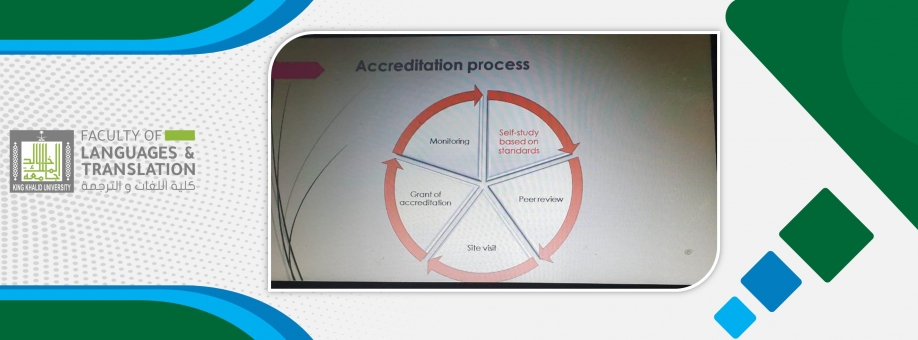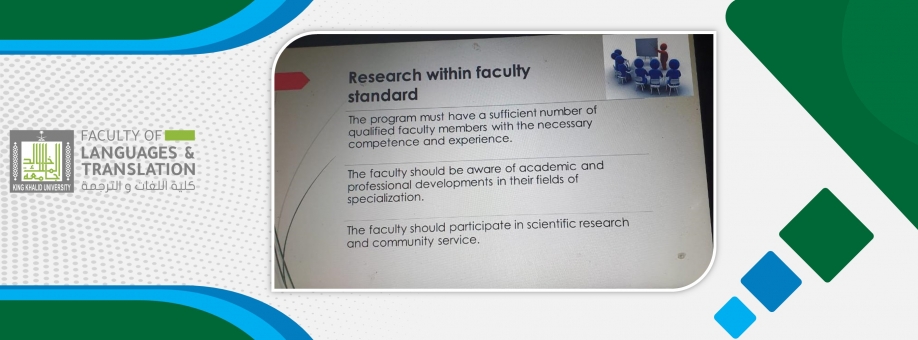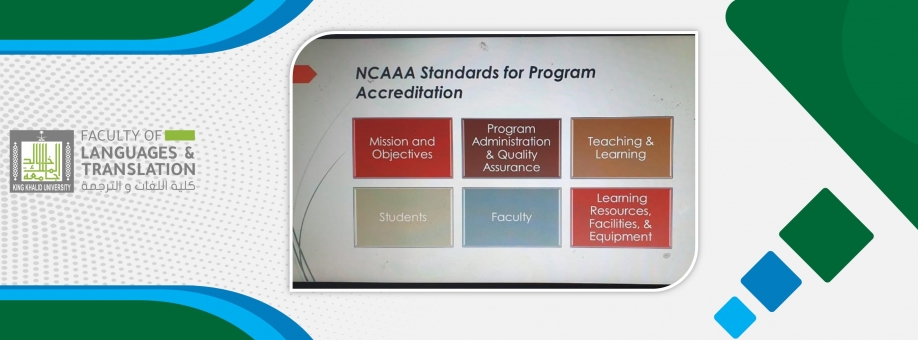Faculty Members Contribute to Public Forum on 7th Anniversary of King Salman
On Monday, November 8, 2021, King Khalid University celebrated the seventh anniversary of Custodian of the Two Holy Mosques, His Royal Majesty King Salman bin Abdulaziz Al Saud's ascension to the throne. As a part of the celebration, a talk was held on leadership and achievement in theater 6. His Excellency the President of King Khalid University, Prof. Fallah Al-Solamy, led the discussion, which was open to the public.
Representing the Faculty of Languages and Translation — and all programs within — were Vice Dean for Academic Development & Quality, Dr. Abdulrahman Almosa, and Dr. Mona Al-Shehri, who is now the General Supervisor of the Student Training Unit. Of note, Dr. Almosa moderated the event and began by recalling the remarkable development and unprecedented achievements we have witnessed at all economic and social levels. Dr. Al-Shehri echoed Dr. Almosa's sentiments by explaining how the exceptional women empowerment reforms have led to an inclusive approach in their participation in national development.
Also participating in the event were Dean of Graduate Studies, Dr. Ahmed Al-Faya, General Director of the Human Resources Operations Department, Muhammad bin Shaya Al-Nahari, and student Reham Al-Shawal. They all highlighted the substantial improvements made in local governance, urban policy, and youth empowerment stemming from Vision 2030.
All programs in the Faculty of Languages and Translation are committed to implementing its role in the community partnership plan of King Khalid University. Please click here to view a recording of the event.
Date: 11/15/2021
Source: Faculty of Languages and Translation



